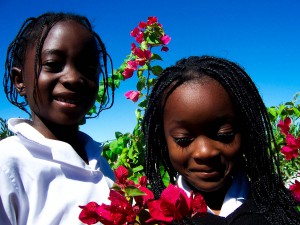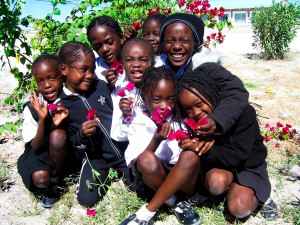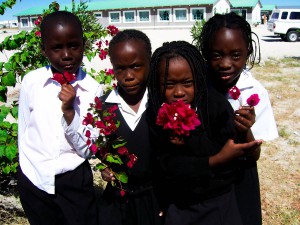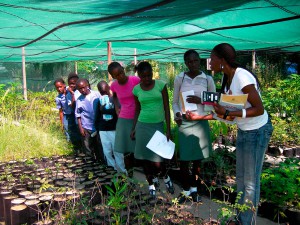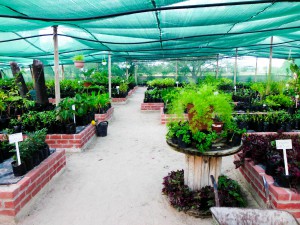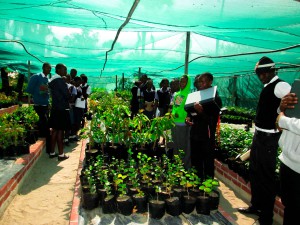The mother tree nursery of Bäume für Menschen – Trees for the World® was installed in 1999 on a 5 ha territory in the administrative area of Ondangwa. It is a base station for ideal growing and reproduction of seedlings and for the creation of a seed bank.
The project location Ondangwa is in the region Oshana with the provincial capital Oshakati as administrative and economic centre. In addition, the cruising radius of the project the regions Ohangwena and Oshikoto. The region’s population density is one of the highest of Namibia with a share of 10 % of the total population.
The mother tree nursery is led by namibian employees. It has the legal form of an “External Company” with the registration no. of Company F/99/1809 (There are no registers specific for societies or associations of public interest in Namibia. Societies are registered in the Companies Register and can be of public interest or of no public interest, depending on their bylaws).
The Bäume für Menschen – Trees for the World® mother tree nursery Namibia is of public interest.
The bylaws are registered in the namibian commercial register.
The principles of our tree nursery are:
- Our project is developed with the active help of the indigenous people and in very close collaboration with leading research institutions (university Namibia, agricultural school Ogongo, University Göttingen, University Hohenheim, technische Universität München Weihenstephan (Technical university of Munich), Institute für Weltforstwirtschaft (Institute for world sylviculture) Hamburg) and organizations of development cooperation.
- Our first priority is the direct improvement and sustainable protection of the people’s life and alimentation situation in the project area.
- At the same time we try to improve the global ecological situation with our projects.
- Based on this, we have developed goal-oriented strategies that combine economical management and cultural and ethnical values in a sensible way.
- Ecological education in the project area (professional training for informants working at the base. We offer professional and advanced trainings on conservation of tropical forest resources for future employees. We also offer a professional training for farm workers as well as advanced trainings for foresters and rangers.)
- Network-building between small regional tree nurseries and their networks.
- Reafforestation measures in heavily exposed degraded areas (welfare forests, regulated forest use, agro- and sylvicultural systems).
- Our longterm goal is to secure the survival of the dry broadleaf forests supporting a resistant vegetation structure. What we need is a compilation and reafforestation of the species, offering the resource benefits of the forest areas as well as the prevention of further clearance, steppe-forming and the resulting desertification and erosion.
- The whole of the ecological and economic benefit of the project will be completely apparent only for future generations. The Namibian pilot project can serve as a trendsetting example for other concerned countries, too.


